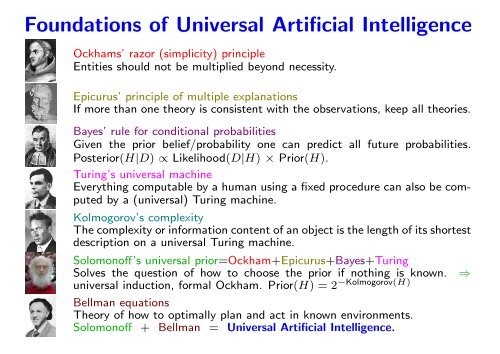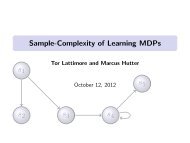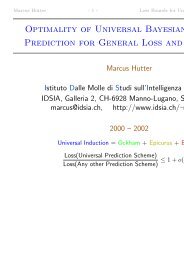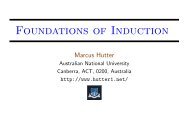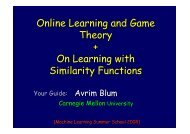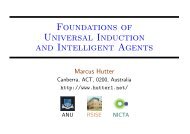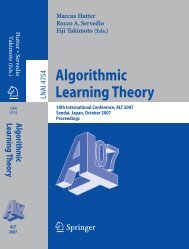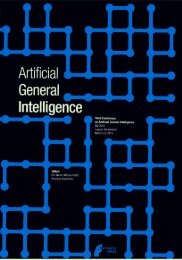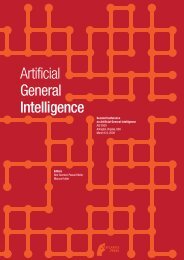Universal Artificial Intelligence - of Marcus Hutter
Universal Artificial Intelligence - of Marcus Hutter
Universal Artificial Intelligence - of Marcus Hutter
Create successful ePaper yourself
Turn your PDF publications into a flip-book with our unique Google optimized e-Paper software.
Foundations <strong>of</strong> <strong>Universal</strong> <strong>Artificial</strong> <strong>Intelligence</strong><br />
Ockhams’ razor (simplicity) principle<br />
Entities should not be multiplied beyond necessity.<br />
Epicurus’ principle <strong>of</strong> multiple explanations<br />
If more than one theory is consistent with the observations, keep all theories.<br />
Bayes’ rule for conditional probabilities<br />
Given the prior belief/probability one can predict all future probabilities.<br />
Posterior(H|D) ∝ Likelihood(D|H) × Prior(H).<br />
Turing’s universal machine<br />
Everything computable by a human using a fixed procedure can also be computed<br />
by a (universal) Turing machine.<br />
Kolmogorov’s complexity<br />
The complexity or information content <strong>of</strong> an object is the length <strong>of</strong> its shortest<br />
description on a universal Turing machine.<br />
Solomon<strong>of</strong>f’s universal prior=Ockham+Epicurus+Bayes+Turing<br />
Solves the question <strong>of</strong> how to choose the prior if nothing is known. ⇒<br />
universal induction, formal Ockham. Prior(H) = 2 −Kolmogorov(H)<br />
Bellman equations<br />
Theory <strong>of</strong> how to optimally plan and act in known environments.<br />
Solomon<strong>of</strong>f + Bellman = <strong>Universal</strong> <strong>Artificial</strong> <strong>Intelligence</strong>.


